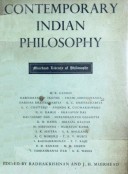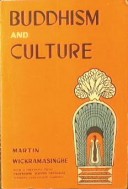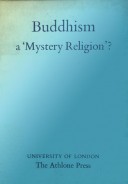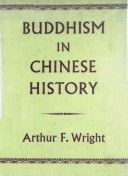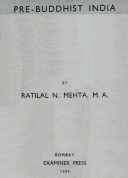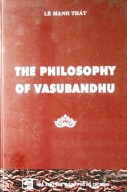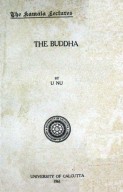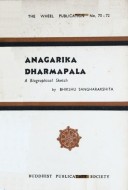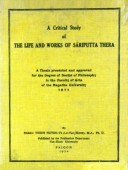Tìm Sách
Sách tiếng Anh-English >> Contemporary Indian Philosophy
Thông tin tra cứu
- Tên sách : Contemporary Indian Philosophy
- Tác giả : Radhakrishnan and J.H. Mueirhead
- Dịch giả :
- Ngôn ngữ : Anh
- Số trang : 643
- Nhà xuất bản : Bradford & Dickens LONDON
- Năm xuất bản : 1958
- Phân loại : Sách tiếng Anh-English
- MCB : 1210000004971
- OPAC :
- Tóm tắt :
Muirhead Library of Philosophy
Edited by Radhakrishnan and J.H. Muirhead
CONTENTS
Foreword by the General Editor of the Library of Philosophy
M. K. GANDHI
RABINDRANATH TAGORE – The Religion of an Artist
SWAMI ABHEDANANDA – Hindu Philosophy in India
HARIDAS BHATTACHARYYA – The Principles of Activism
K. C. BHATTACHARYYA – The Concept of Philosophy
G. C. CHATTERJI – Common-sense Empiricism
ANANDA K. COOMARASWAMY – On the Pertinence of Philosophy
N. G. DAMLE – The Faith of an Idealist
BHAGAVAN DAS – Atma-Vidyã, or The Science of the Self
RAS-VIHARY DAS – Pursuit of Truth Through Doubt and Belief
SƯRENDRANATH DASGUPTA Philosophy OF Dependent Emergence
D. M. DATTA – Knowledge, Reality and the Unknown
xii CONTEMPORARY INDIAN PHILOSOPHY
HIRALAL HALDAR – Realistic Idealism
M. HIRIYANNA – The Problem of Truth
HUMAYUN KABIR – Freedom, Aitthority and Imagination
- K. MAITRA – Outlines of an Emergent Theory Of Values
- R. MALKANI – Freedom Through Knowledge
- C. MUKERJI – Suggestions for an Idealistic Theory Of Knowledge
- R. V. MURTI – The Spirit of Philosophy
- RADHAKRISHNAN – The Spirit in Man
- T. RAJU – The Inward Absolute and the Activism Of The Finite Self
- D. RANADE – The Evolution of My Own Thought
- M. SHARIF – Dialectical Monadism
- SUBRAHMANYA IYER – Man’s Interest in Philosophy: An Indian View
- R. WADIA – Pragmatic Idealism
Index
FOREWORD
The contribution of India to the philosophical literature of the world may by this time be said to be an open book to English readers. For the last sixty years, since Max Muller began the publication of the Sacred Books of the East in 1875, the great scroll of its story has been gradually unrolling itself before their eyes. Within the last few years comprehensive and scholarly histories of Indian philosophy in all its many schools by Professor Das Gupta and Sir S. Radhakrishnan and many monographs and handbooks by less-known writers have been published both in India and in England. Even the slightest acquaintance with these sources is sufficient to convince the reader of the justice of the claims put forward on their behalf,1 that “there is hardly any height of spiritual insight or rational philosophy attained in the world that has not its parallel in the vast stretch that lies between the early Vedic seers and the modern Naiyãyikas,” who with their analytic and critical methods may be said to stand to the Vedãnta in somewhat the same relation as Kant and his followers stand to the great neo-Platonic and Patristic tradition of the West.
While we may thus well be convinced that Indian thought in the past represents a chapter in the history of the human mind that is full of vital meaning for us and well fitted by its profound sense of a spiritual Presence brooding over the world of our ordinary experience to wean us from too exclusive occupation either with secular life or with the temporary formulations, in which Western theology has too often sought to imprison religious aspiration, it may still be asked whether in India itself all this exists today as a mere tradition or has formed the soil and supplied the seed for fresh developments. It was in the conviction that in present-day philosophy there is more than a tradition, and that, owing partly to the inherent genius of the race, partly to a fructifying contact with Western thought, the tree of philosophical knowledge has recently put forth fresh flower and fruit that the idea of this volume as a continuation of the series on Contemporary British and Contemporary American Philosophy, when suggested by an Indian friend, was welcomed by the Editor of the Library of Philosophy. Coming as it did at a moment when, on the eve of the gigantic political experiment legislated for in the Indian Act, the need of a fuller understanding of the mind of the leaders of thought in that country, some of whom are certain to be called to take a prominent part in the new administration, is above all things desirable, the proposal seemed to be one of more than theoretic interest. What are the ideas of these men as to the ends of human life and the form that should be given to it through education and “the spirit of the laws” so as to make it seem to the present and future generations of this vast continent to be truly worth living? It was our own Berkeley who said: “Whatever people may think, the man who has not deeply meditated on the human mind and on the summum bonum may possibly make a thriving earthworm, but will undoubtedly make a sorry politician and statesman.” Is there ground for the faith that among the leaders of thought in India there are men who belong to the type that Berkeley had in view, and who possess the kind of insight which can be trusted to guide their people through the desert of political experimentation and controversy that lies between them to the land which seems both to them and to most of us so full of promise? It is because it is believed that some reassurance on this head will be derived from the essays in this volume that, apart from technical value in the field of philosophy, a certain political importance and timeliness may be claimed for it.
Going beyond any temporary political bearing its publication may, it is further hoped, contribute to a better mutual understanding between the whole mind of East and West. It is surely with justice that one of the contributors has pilloried the verse “East is East and West is West and never the twain shall meet” as “an utterance of abysmal ignorance and the deepest discouragement,” and has set against it the power of that “intellectual wisdom, which is one and the same at all times and for all men and is independent of all environmental idiosyncrasy,” to provide an effective entente between them. It may therefore not be inappropriate in this Foreword to mention one or two of the points in which many Western thinkers will, it is believed, find I themselves in profound agreement with the spirit that animates most of the writers.
Contrary to what is usually thought of the remoteness from practice of Indian Philosophy, what here strikes one is the lively sense of its practical value. As one of the writers has quaintly put it, “its chief concern has not been to conceive of a philosophical scheme like a toy machine to play with, but to make of it a chariot in which man could ride.”
Another equally striking feature (again contradictory to popular views) is the spirit of tolerance that breathes in their teaching—the conviction that it is one truth that is expressed in all forms of anything that can be called in a true sense religion. “If we study religions,” we are told by the same writer, “with a view to discovering, not how much of error, but how much of truth, each embraces, we shall be far more impressed by their similarities than by their diversities.” And again: “In Hindu philosophy a man is regarded as a true teacher who gives to any individual a better access to that individual’s own scriptures, for ‘the path men take from every side is Mine’… There is always a natural manifestation of the one Almighty God amongst all right-thinking men.”
Surprising too (to mention only one further point) to many who have accused Indian philosophy of a prevailing note of pessimism is the tone of hopefulness that pervades one and all of the contributors, and for which the authority of the whole course of Indian philosophy is claimed. “No Indian seer,” writes another,” has allowed himself to be overpowered by a sense of evil.” We hear much indeed of philosophy as a call to transcend the narrowness of egoism and identify ourselves with something greater than ourselves as the way of salvation, but this is not in order to escape from the ineradicable evil of existence but in order to find ourselves in things that give to existence its only true value. For “in the man who transcends his narrow self and merges it in the life of the whole philosophy as truth, religion as devotion and morality as goodness meet.”
The Editors had hoped that Mr. Gandhi, the leader of Indian religious reformat, might have been tempted by the questionnaire sent to him to give a fuller statement than we have as yet had of the philosophy underlying his political teaching, but perhaps we ought not to regret that he has refused to devote even a small portion of his time to anything less important than the great mission he has undertaken to redeem his country from the most deeply rooted of the evils it has inherited from the past. He has, however, sent a condensed statement of the answers he would be prepared to give to the editorial questions, and we print it with gratitude below.
Owing to the necessity to impose some easily understood limit to the range of choice, the essays which follow are all written by philosophers of or about forty-five years of age. They fall into two main groups: those in which the writer devotes himself chiefly to the exposition of the great Vedic tradition as he has apprehended it and made it the basis of his own life’s work; and those in which the writer, while on the whole remaining true to the spirit of that tradition, has sought to give new interpretations of it, either by instituting comparisons of it with the Western doctrines most closely allied to it or by treating of modem problems in a way which, though suggested by what he has learned from the West, is yet stamped with the mark of his own racial sympathy. Western readers will naturally find the latter group more attractive; but this volume will have failed of its purpose if it does not give them some sense of the truth that underlies even the essays with which, owing to the presuppositions on which these are founded, they find themselves least in sympathy.
Whichever of the two groups attracts the reader, it is well that he should remind himself that, as in politics so in philosophy, India stands at the opening of a new era in her history which requires above all things, along with an abiding admiration of her past achievements, a forward-looking faith in the power of the soul of her people to rise as high as, and perhaps even to excel the greatest of them.
One conspicuous omission in the essays contained in this volume requires a word of explanation. It was hoped that it might be possible to include contributions from adherents of both the great traditions represented in Indian religious thought. With this view, besides philosophers known to be attached to Hinduism, several Moslems were approached, but for different reasons excused themselves, and it has been found necessary to proceed with this, which it is hoped may be merely a first edition, without further attempt to fill the gap.
The order of the contributions is alphabetical with the exception that Gandhi and Rabindranath Tagore have been given the place of honour at the beginning in consideration of their worldwide fame in fields other than that of technical philosophy.
GENERAL EDITOR
of the Library of Philosophy
 Facebook
Facebook
 Google
Google
 Google+
Google+
